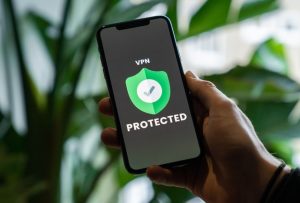We all have a reasonable expectation of privacy, which is sometimes referred to as the “right to be left alone.” This right is protected by the Fourth Amendment, which is concerned with reasonable expectations of privacy and government misconduct that violates those expectations. In this article, we will provide an overview of the four types of invasion of privacy and how each can affect individuals.
Privacy has become a broad concept that encompasses more than just the right to be left alone. Autonomy plays an important role in our understanding of privacy, as it gives individuals control over their own lives and decisions. However, autonomy does not necessarily guarantee complete protection from invasion of privacy. In this essay, we will examine four different areas where our existing ideas about constitutional rights may be challenged by modern technology such as Facebook and Google: intrusion upon seclusion or solitude; public disclosure of private facts; false light; and appropriation for commercial gain or other benefit.
The test used to determine whether an action constitutes an invasion of privacy is whether it violates one’s reasonable expectation thereof under prevailing social norms at the time such action was taken against them regardless if they were aware at the time such action was taken against them regardless if they were aware at the time such action was taken against them regardless if they were aware at the time such action was taken against them regardless if they were aware at the time such action was taken against him/her/them . It is important to note that these four types are only some examples out there – there are many other ways people’s rights can be violated when it comes to invasion of privacy – but these are some common ones you should know about and watch out for!
Intrusion Upon Seclusion
Intrusion upon seclusion is a type of invasion of privacy that occurs when someone intentionally intrudes, physically or through electronic surveillance, upon the solitude or seclusion of another without their consent. This tort is recognized in civil law and those found guilty can be required to pay damages to the person whose privacy was violated. Intrusion upon seclusion applies in any sphere where an ordinary person could reasonably expect that others should be excluded. Examples include installing a hidden camera in someone’s home without their knowledge or attempting to access private information without permission. According to Prosser, invasion of privacy is not one tort but rather a complex of four distinct torts: intrusion upon seclusion, public disclosure of private facts, false light publicity and appropriation for commercial advantage. In cases such as Kutzmitskaya v. Roudnev, where an individual suffered from unauthorized access to her personal information by another party, the principle of intrusion on seclusion can be applied as grounds for legal action against the perpetrator.
Public Disclosure of Private Facts
Public disclosure of private facts is a type of invasion of privacy that occurs when someone reveals confidential information about another person without their consent. This could be anything from revealing an illness to disclosing personal details about someone’s life. It is a form of tort law, and those found guilty can be required to pay damages to the victim. Private facts are defined as information that has not been previously revealed to the public and is not considered legitimate news or public interest. Disclosure refers to allowing access or releasing any personally identifiable information contained in education records without permission from the individual it belongs to. Publicity that places a person in false light, such as portraying them in an unflattering way, is also considered an invasion of privacy. The principle extends into any area where one would expect others should be excluded, such as medical records or financial documents. The Institute of Medicine (IOM) committee has conceptualized health database organizations (HDOs) which are responsible for protecting individuals’ private data and ensuring it remains confidential unless authorized by the individual themselves.
False Light
False light is a type of invasion of privacy that occurs when someone portrays a person in a false or misleading way without their consent. This tort, which is part of the law, can result in damages being paid to the person whose privacy was violated. False light is similar to defamation in US law and involves stating what may be technically truthful or opinion-based information, but in a manner indicating to the public that it is something else. It also includes publicity that places an individual in an offensive light even if the facts are true.
False light invasion of privacy involves portraying individuals as something they are not and doing so without their consent. This type of invasion of privacy can include public disclosure of private and embarrassing facts about someone, as well as placing them in an offensive light even if the facts are true. In addition, it may involve misappropriation of name or likeness without permission from those involved.
Consent plays an important role when it comes to false light invasion of privacy claims since those found guilty can be required to pay damages for violating someone’s right to seclusion or solitude. The laws surrounding this type of tort vary from state-to-state but generally require proof that there was some kind of intentional misrepresentation made with malicious intent towards another individual’s reputation or character.
In order for false light claims to be successful, plaintiffs must prove that they were portrayed falsely and publicly by another party who had knowledge about how damaging such portrayal could be for them personally or professionally. Furthermore, plaintiffs must also demonstrate how such portrayal caused harm either financially or emotionally due to its negative implications on their reputation and character within society at large.
False Light Invasion Of Privacy is one example among many types included under US law concerning personal rights and freedoms related to protecting individuals from unwanted intrusions into their private lives by others who seek gain through exploiting them publicly without permission given beforehand by those affected directly by such actions taken against them unlawfully
Appropriation of Name or Likeness
Appropriation of name or likeness is a form of tort law that occurs when someone uses another person’s name or likeness without their consent. This type of invasion of privacy can be used to seek damages from the person who violated the privacy rights. It is also referred to as misappropriation and involves the unauthorized use of a person’s name, photograph, likeness, voice, or endorsement for financial or professional gain. The benefit derived from this type of appropriation can be broadly defined and may include profits made by the violator. In order to prove these profits, the injured party must provide evidence such as deductible expenses incurred in relation to the violation. Punitive damages may also be awarded in addition to any other compensation received by those affected by this type of invasion of privacy.
Conclusion
In conclusion, invasion of privacy can take many forms, including Intrusion upon Seclusion, appropriation of name or likeness, public disclosure of private facts and false light. It is important to be aware of these different types in order to protect yourself and those around you from potential violations. Intrusion upon seclusion involves an individual entering another person’s private space without permission. Appropriation of name or likeness involves the unauthorized use of a person’s identity for commercial gain. Public disclosure of private facts involves revealing information that is not generally known about a person without their consent. Finally, false light occurs when someone portrays another in a false or misleading way that could be damaging to their reputation. Knowing the different types and how they are defined can help you protect your privacy and the privacy of those around you from potential violations.




Be First to Comment